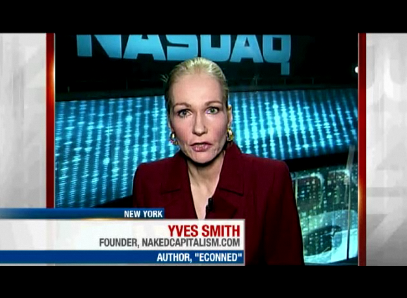With Friends Like Moody’s…
Good to see Moody’s rebuilding its franchise. Their aura of mystery is still reassuringly intact, two years after the subprime CDO ratings fiasco; as a bemused Firedoglake notes, in connection with two diametrically opposed, and politically charged, opinions about the tax cuts and their projected effect on the US credit rating: Can someone tell me […]
Read more...
